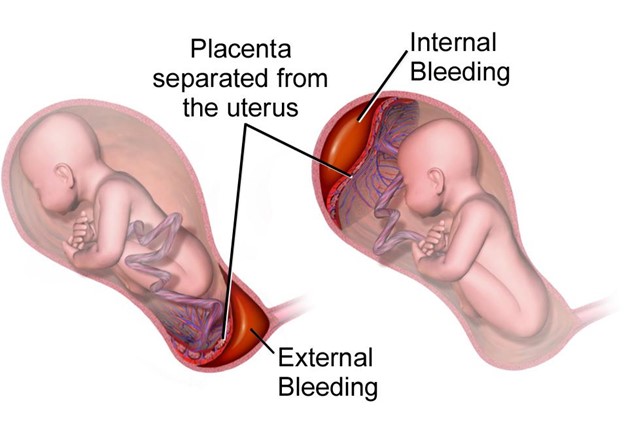A nurse is developing a plan of care for a newborn who has hyperbilirubinemia and a prescription for phototherapy. Which of the following interventions should the nurse include?
Check the newborn's temperature every 8 hr.
Apply moisturizing lotion to the newborn's skin every 4 hr.
Give the newborn 1 oz of glucose water every 4 hr.
Reposition the newborn every 2 to 3 hr.
The Correct Answer is D
Choice A rationale:
Checking the newborn's temperature every 8 hours is not directly related to managing hyperbilirubinemia or phototherapy. Monitoring the newborn's temperature is important, but it should be done more frequently, especially during phototherapy, as infants are at risk of developing hypothermia.
Choice B rationale:
Applying moisturizing lotion to the newborn's skin every 4 hours is not a necessary intervention for hyperbilirubinemia or phototherapy. While skin care is important for all newborns, it is not a specific intervention for this condition.
Choice C rationale:
Giving the newborn 1 oz of glucose water every 4 hours is not an appropriate intervention for hyperbilirubinemia. Glucose water is not a recommended treatment for this condition.
Instead, phototherapy helps break down the bilirubin and promote its elimination from the body.
Choice D rationale:
Repositioning the newborn every 2 to 3 hours is the correct intervention. Repositioning helps ensure even exposure of the baby's skin to the phototherapy lights, maximizing its effectiveness in reducing bilirubin levels. Additionally, repositioning prevents pressure ulcers and promotes comfort for the infant during treatment.
Nursing Test Bank
Naxlex Comprehensive Predictor Exams
Related Questions
Correct Answer is D
Explanation
Choice A reason:
Preparing for an amnioinfusion is not the first-line action. It may be considered if decelerations do not resolve with initial measures such as maternal repositioning.
Choice B reason:
Administering oxygen is a subsequent measure if initial interventions like repositioning do not improve the FHR. Oxygen is typically given at 8-10 L/min via a nonrebreather mask to increase fetal oxygenation.
Choice C reason:
Discontinuing oxytocin is important if the cause of decelerations is uterine hyperstimulation. However, repositioning the client should precede this action to quickly address potential umbilical cord compression.
Choice D reason:
This is the first action to take because it can quickly alleviate potential compression of the umbilical cord, which is often the cause of variable decelerations. It may be considered if decelerations do not resolve with initial measures such as maternal repositioning.
Correct Answer is A
Explanation
Choice A rationale:

Continuous abdominal pain and vaginal bleeding in a client with a history of cocaine use are indicative of abruptio placentae. Abruptio placentae is a medical emergency where the placenta detaches from the uterine wall before delivery, leading to severe bleeding and abdominal pain. Immediate medical intervention is necessary to prevent complications for both the mother and the baby.
Choice B rationale:
Hydatidiform mole is a gestational trophoblastic disease that occurs due to an abnormal pregnancy. It is not associated with continuous abdominal pain and vaginal bleeding. Instead, clients with this condition often present with vaginal bleeding and a grape-like cluster of cysts in the uterus.
Choice C rationale:
Preterm labor involves regular uterine contractions and cervical changes before 37 weeks of gestation. While preterm labor can cause abdominal discomfort, it is not usually described as continuous abdominal pain. Vaginal bleeding is not a typical symptom of preterm labor.
Choice D rationale:
Placenta previa is a condition where the placenta covers the opening of the cervix. It can cause painless vaginal bleeding, but it is not usually associated with continuous abdominal pain. Clients with placenta previa often experience sudden, painless bleeding later in pregnancy.
Whether you are a student looking to ace your exams or a practicing nurse seeking to enhance your expertise , our nursing education contents will empower you with the confidence and competence to make a difference in the lives of patients and become a respected leader in the healthcare field.
Visit Naxlex, invest in your future and unlock endless possibilities with our unparalleled nursing education contents today
Report Wrong Answer on the Current Question
Do you disagree with the answer? If yes, what is your expected answer? Explain.
Kindly be descriptive with the issue you are facing.
